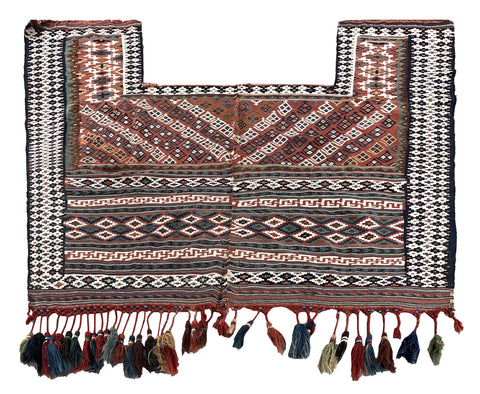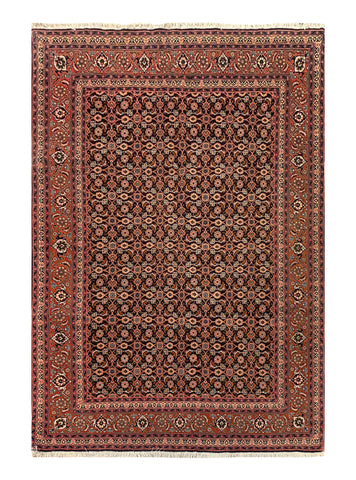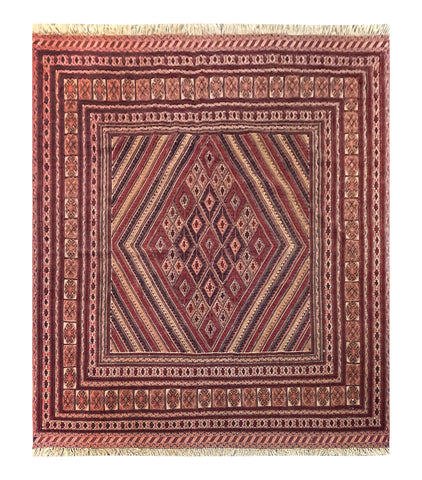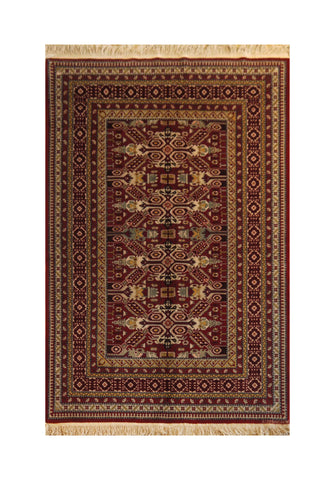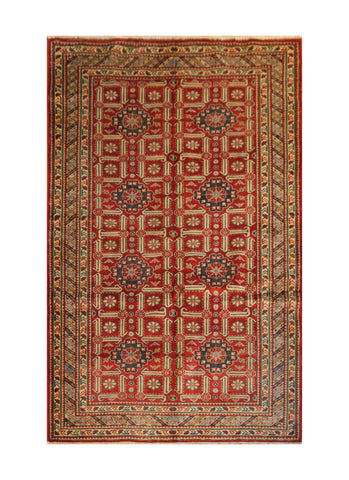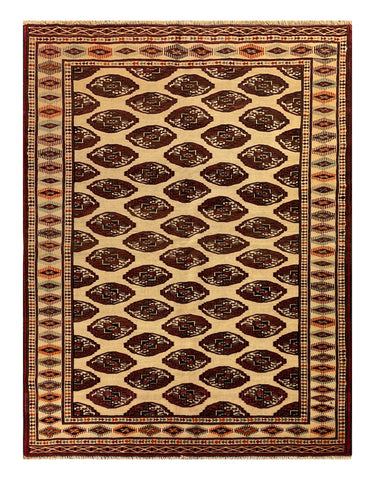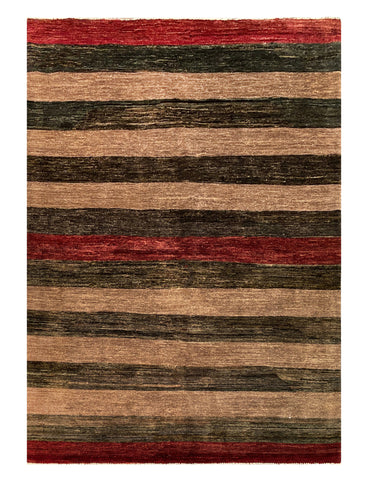18113 - Sarough Antique (1920-1930)Hand-Knotted/Handmade Persian Rug/Carpet Traditional Authentic/ Size: 6'0" x 4'10"
Babak's Oriental Carpets
1 in stock
Antiques
NR: 18113
Location: Sarough (Farahan) (Antique Circa 1920-1930)
Size: 6'0" x 4'10"
Country: Iran
Pile: Wool
Base: Cotton
SAROUGH
Details:
Sarough rugs are originally made in the Markazi province in northwestern Iran, woven in the village of Saruk and the city of Arak as well as the surrounding countryside. The Sarough style has...
NR: 18113
Location: Sarough (Farahan) (Antique Circa 1920-1930)
Size: 6'0" x 4'10"
Country: Iran
Pile: Wool
Base: Cotton
SAROUGH
Details:
Sarough rugs are originally made in the Markazi province in northwestern Iran, woven in the village of Saruk and the city of Arak as well as the surrounding countryside. The Sarough style has since been adopted by other regions, as in the case of Indian Saroughs (also known as Indo-Sarouks).
Saroughs are hand knotted on a vertical loom using warp and weft in cotton. The weft consists of two or sometimes three threads. In carpets made before 1915, the weft is pushed down hard against the knots, which made the carpets especially compact. The pile is of very good quality wool and is cut short. However, more recent pieces seem to have deeper piles. The Persian knot is used with a density of 160 to 400 knots per square inch.
Description:
Saroughs may be divided into two categories: carpets with traditional designs and those intended for export, particularly to the United States. The traditional designs consist, for the most part, of the central medallion pattern. The pattern is similar to those used in Kashans, but the different interpretations by different craftsmen give the carpets a special imprint. Although they have floral patterns, this is executed in an angular fashion, resulting in an incomparable fusion of floral and geometric styles. Old and antique Saroughs employ a central medallion as well as frequent use of the boteh motif, which is a stylized leaf-like floral symbol, similar to the Paisley pattern.
In contrast, the American Sarough (or Lilian) design features large blossoming floral sprays radiating outwards from a central, medallion-like, floral form. It is so named because it was adapted for the American market from a design originating in the village of Lilian; the true Lilian design has a spidery central medallion which American Saroughs do not. American Saroughs use either rich rosy reds with blues and paler rose outlining the motifs, or, less frequently, bright pastel shades (usually pale blues, turquoise or lemon yellow), used to create the same strong contrasts between motifs and field as in American Kermans.
In all Saroughs the border is simple, almost always consisting of two guards framing a wider central band, which is often decorated with heratis while the former is often of traditional rosettes and wavy line collections. The color scheme is often a bright orange-red in the field, which is softened by ivory, dark blue, red-brown and dull green. Various shades of turquoise are common in the decorative motifs.
Price Range and Value:
MEDIUM TO HIGH
Saroughs generally have a sound resale value.
For any further questions please call us at: (250) 480-7114
Sarough Articles & Videos
Wikipedia Entry (Article)
Landscapes & Nature (Video)









